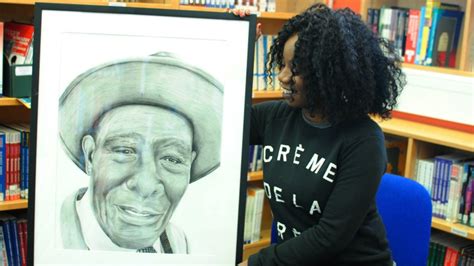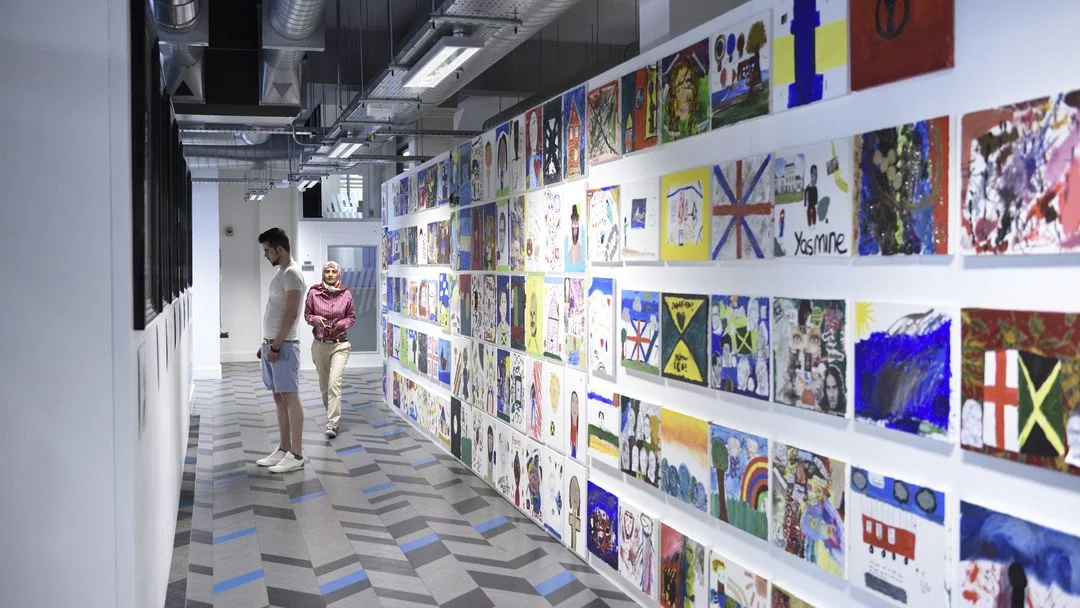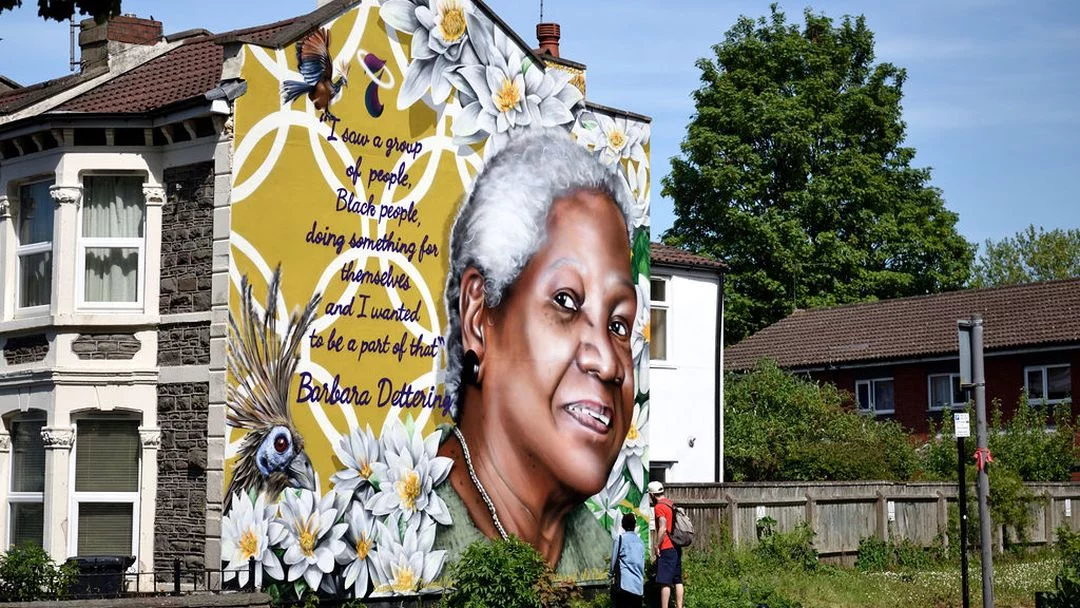March 20th: Today’s Feature
- webbworks333
- Mar 20, 2025
- 4 min read
March
Michele Curtis from Iconic Black Britons CIC
The Seven Saints of St Pauls arts project was a remarkable initiative that commemorated two significant milestones in Bristol's history. Firstly, it celebrated the 50th anniversary of the renowned St Pauls Carnival, a vibrant African Caribbean carnival that takes place annually during the summer. This carnival holds immense cultural significance for the city, serving as a cherished tradition that brings together people from diverse backgrounds, especially those from Black, Asian, and Minority Ethnic (BAME) communities.

Additionally, the project also honoured the 70th anniversary of the Windrush Generation, marking the beginning of a significant era in British history. To commemorate these milestones, the project adorned the city with seven magnificent murals, each depicting a different saint. These giant murals not only added a touch of artistic beauty to Bristol's landscape but also served as a visual representation of the rich cultural heritage and identity of the city, particularly for the BAME community. Alongside the murals, the project also curated a comprehensive arts program, encompassing a wide range of artistic expressions, further enhancing the celebration of these important anniversaries.
Michele Curtis, an artist based in Bristol, has always had a passion for creativity since her childhood. Growing up in a time when pursuing a career in the arts was not widely accepted, especially for black women, she faced numerous challenges. However, her determination and love for art never wavered.
Throughout her life, Michele and her children experienced racism on a daily basis, which made her realise the importance of positive representation for the African Caribbean community. She recognised that the ongoing stigmatisation of this community was a significant factor contributing to these experiences. This realisation fuelled her desire to use art as a powerful tool to shed light on the experiences and struggles faced by the African Caribbean community in Bristol.
Michele's ultimate goal was to bridge the gap in multicultural representation within British society. She aimed to create projects that not only showcased the rich cultural heritage of the African Caribbean community but also provided resources for cultural socialization. In 2014, she successfully organized her debut exhibition titled "Iconic Black Bristolians," which served as a platform to celebrate and honor the contributions of influential black individuals in Bristol's history. This exhibition not only showcased her artistic talent but also highlighted the importance of representation and diversity in society.
These exhibitions would showcase the rich cultural heritage and diversity of the St. Pauls community, celebrating its vibrant history and contributions to the city of Bristol. Michele's vision was to create a truly immersive experience for visitors, incorporating various art forms such as paintings, sculptures, installations, and performances.
The exhibitions would not only serve as a platform for local artists to showcase their talent, but also as a means to engage the community and foster a sense of pride and unity. Michele believed that through art, people could come together, share their stories, and create a dialogue that transcended cultural boundaries.
The support and advice she received from the Arts Council's Bristol office and the national customer service operators played a crucial role in her decision to apply for National Lottery Project Grants funding. Their encouragement and belief in her vision gave her the confidence to pursue her ambitious project and make it a reality. Michele saw this funding as an opportunity to not only bring her artistic vision to life, but also to make a positive impact on the St. Pauls community and the wider Bristol area.
The Seven Saints of St. Pauls project was conceived with the intention of also creating an immersive experience through an outdoor art and heritage trail. This trail consists of seven large-scale murals that showcase the hidden history of our city. To enhance the visitor's experience, the project have also developed a mobile app that provides additional information and interactive features. This app, which can be easily downloaded via Cactus Apps, allows users to delve deeper into the stories behind each mural and engage with the artwork in a unique way.
Throughout the development of this project, Michele received overwhelming support and engagement from various sectors of society. Media coverage and school presentations have helped spread awareness about the project, while individuals from all walks of life have shown a genuine connection to the lives of the historical figures depicted in the murals. From offering suggestions for portrait subjects to sharing a cup of tea on-site, the community has actively participated in making this project a success.
Initially, there were misconceptions that the project would only appeal to the BAME (Black, Asian, and Minority Ethnic) community, leading some to perceive it as "BAME specific." However, Michele firmly believed in the importance of inclusivity and ensuring that the project would benefit everyone. By partnering with the University of Bristol, despite its location in a predominantly non-BAME and affluent neighbourhood, she aimed to challenge these preconceived notions.
The success of the project has proven that positive representation of BAME communities benefits society as a whole, regardless of one's background. It is a testament to the power of approaching projects in an inclusive manner, where everyone can find value and connection.
Michele, a black, female, and disabled artist, has often felt like an outsider and a target for stigmatisation in the art world. However, after visiting the Arts Council office, she found herself feeling completely out of place and questioning her presence there. This experience triggered feelings of imposter syndrome, making her doubt her belonging in the creative sector.
Despite these initial doubts, Michele has come to realise the importance of representation and diversity in the arts. Her conversation with the Arts Council not only validated her thoughts, plans, and aspirations but also highlighted the need for marginalized communities and minority groups to see themselves reflected in the arts. This realisation has empowered Michelle to advocate for diversity in the arts and has led her to successfully transform her art-based projects into a thriving business, Iconic Black Britons CIC. Through her journey, Michelle has not only found her place in the creative sector but has also become a champion for inclusivity and representation in the arts.























